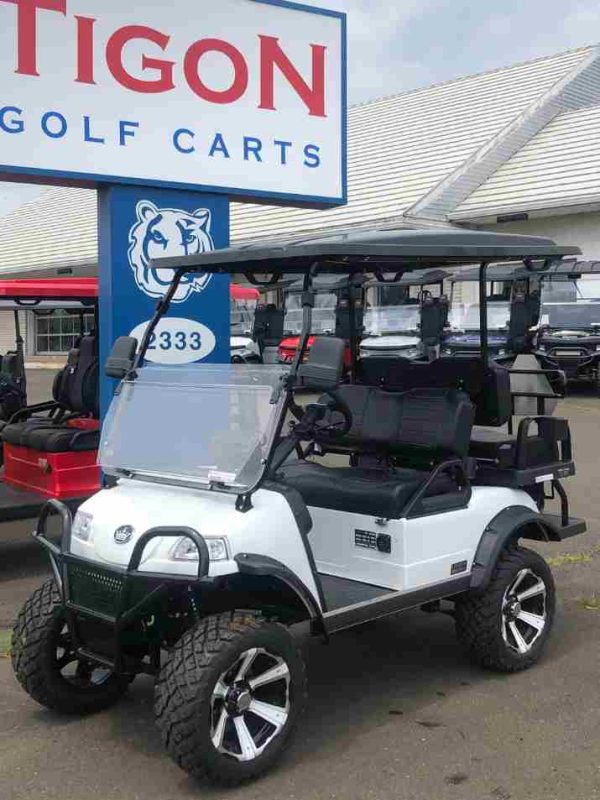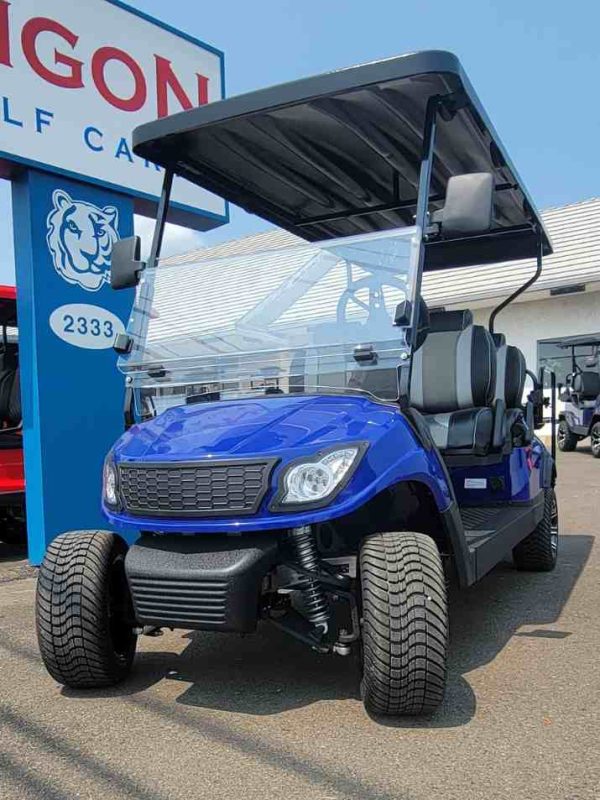
Golf Cart Gas Engine Troubleshooting Table: Common Issues & Fixes
Golf Cart Gas Engine System Troubleshooting Table: A Complete Guide

Understanding Gas-Powered Golf Carts
While electric golf carts have grown in popularity, gas-powered models remain a trusted choice for many golf courses and personal users due to their power, range, and reliability. However, like any small engine system, they can face performance issues over time. At Tigon Golf Carts, we’ve put together this expert guide and troubleshooting table to help you quickly identify and resolve common gas engine problems.
Key Components of a Gas Engine Golf Cart
To effectively troubleshoot your gas golf cart, it’s important to understand the primary components involved in the engine system:
- Carburetor
- Spark plug
- Fuel pump
- Air filter
- Battery & ignition system
- Drive belt and clutch system
- Oil and cooling system
Signs Your Golf Cart May Have Engine Problems
Gas engine problems can manifest in various ways. Here are some warning signs to watch out for:
- Hard starting or failure to start
- Engine stalling or sputtering
- Excessive exhaust smoke
- Decreased power or acceleration
- Strange engine noises
- Overheating
Common Gas Golf Cart Engine Problems and Solutions
Use the structured troubleshooting table below to quickly diagnose and resolve issues:
Gas Engine Troubleshooting Table
| Symptom | Possible Cause | Recommended Fix |
|---|---|---|
| Cart won’t start | Dead battery | Charge or replace the battery |
| Loose or corroded battery cables | Clean and tighten connections | |
| Faulty starter solenoid | Test and replace solenoid if needed | |
| Engine starts but dies quickly | Clogged fuel filter | Replace the fuel filter |
| Dirty carburetor | Clean or rebuild carburetor | |
| Cart loses power uphill | Worn drive belt | Replace the drive belt |
| Dirty air filter | Clean or replace air filter | |
| Bad fuel pump | Test and replace fuel pump | |
| Engine overheating | Low oil level | Refill oil to proper level |
| Blocked cooling fins | Clean engine cooling fins | |
| Engine backfiring | Incorrect spark plug gap | Adjust or replace spark plug |
| Timing issues | Inspect and adjust timing if necessary | |
| Excessive smoke from exhaust | Too much oil | Check oil level and drain excess |
| Worn piston rings | Replace piston rings (advanced repair) | |
| Cart is loud or rattling | Loose engine mount | Tighten or replace engine mounts |
| Muffler damage | Inspect and replace muffler |
Preventative Maintenance Tips
Avoid major repairs by sticking to a regular maintenance schedule. Here are some key tips:
- Change oil every 50-100 hours of operation
- Check and replace spark plugs regularly
- Clean or replace the air filter monthly during heavy use
- Inspect fuel lines and clamps for cracks or leaks
- Keep battery terminals clean and tight
When to Call the Experts at Tigon Golf Carts
Some problems require professional tools and experience. If you’re unsure about handling engine disassembly, timing adjustments, or piston-related issues, reach out to the certified technicians at Tigon Golf Carts. We offer expert repair services and parts at all of our East Coast dealership locations.
Keep Your Gas Golf Cart Running Strong
Gas golf carts are powerful and durable when properly maintained. This troubleshooting guide is designed to empower you with the knowledge to fix basic issues and keep your cart running at peak performance. Trust Tigon Golf Carts for all your maintenance needs—because reliability starts with the right care.
GET THE GOLF CART LSV AT THE RIGHT PRICE!
Tigon Golf Carts proudly offers 0% Vehicle Financing, making it easier than ever to own your dream golf cart. With flexible payment options and competitive rates, we ensure that Upgrading or Purchasing for the first time is not only exciting but also financially feasible for our customers, allowing you to hit the road in style without breaking the bank.















